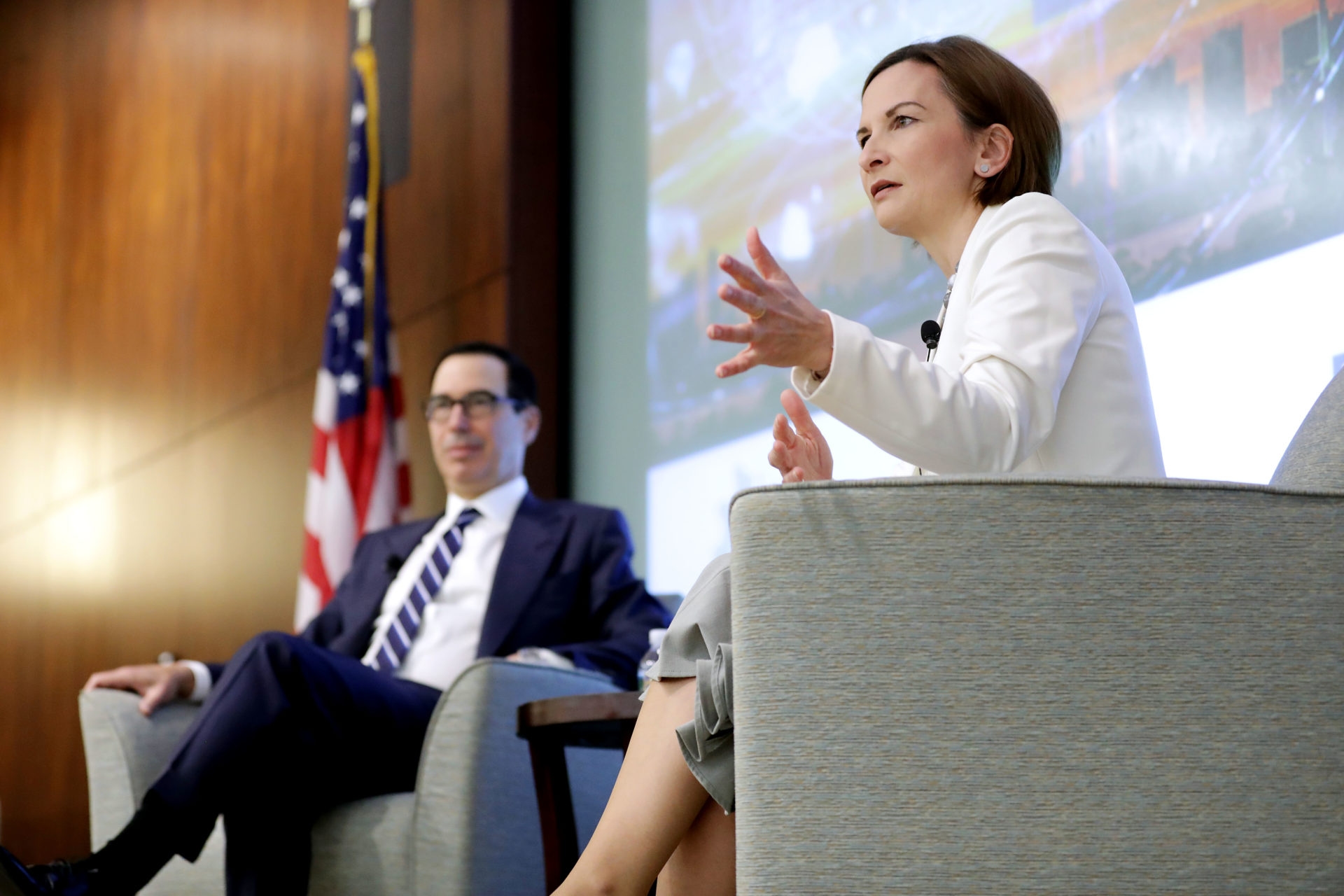Regulators Issue Coronavirus Guidance on Small-Dollar Lending: Instant Reaction

Financial regulators on Thursday urged banks to offer small-dollar loans, anticipating a growing need during the coronavirus pandemic.
Most banks have pulled back from offering small-dollar products to consumers, citing 2013 guidance from the Federal Deposit Insurance Corp. and Office of the Comptroller of the Currency that discouraged the practice. The agencies and the Federal Reserve Board have discussed issuing new guidance that encourages banks to re-enter the market, and agency staff said that more permanent and detailed guidance is still in the works.
In a new interagency statement released Thursday, the latest from bank regulators as they react to the coronavirus crisis, the Fed, FDIC, OCC, National Credit Union Administration and Consumer Financial Protection Bureau reassured banks that they would “favorably consider” banks offering short-term unsecured credit products, which could include open-end lines of credit, closed-end installment loans or appropriately structured single payment loans.
Morning Consult asked finance experts and analysts for their opinion on the statement. Here are their thoughts:
Rebecca Borné, senior policy counsel at the Center for Responsible Lending
“A single payment loan is a payday loan. They are invariably due on receipt of the customer’s next deposit.
“That payday could be a paycheck, it could be a government benefit check, it could be a benefit check. The notion that a single payment loan would be appropriate for consumers is wrong any time, but especially now, when consumers are looking at relatively long-term financial distress.
“We haven’t known a bank payday loan that has been lower than an effective price of 90 percent, and typically they’re priced in the 225 percent and 300 percent APR range. These are appalling rates anytime, but especially when banks are seeing zero percent interest loans from the federal government.”
Jeremy Kress, assistant professor of business law at the University of Michigan’s Ross School of Business, teaching macroprudential financial regulation
“When banks get certain regulatory advantages on a temporary basis, the banks are likely to fight hard to maintain those benefits on a permanent basis, especially if Congress or the regulatory agencies don’t lay out an end date. I’d imagine pressure would be very strong on the regulatory agencies to make these regulatory changes in perpetuity.
“We are in a public health and economic emergency right now, and we’re going to remain in difficult economic times for the foreseeable future. The financial sector is going to cite a lot of data suggesting that economic conditions haven’t changed substantially enough, and they are going to argue that now is not the time to be reimposing regulations. If history is any guide, they’re probably going to be successful in those arguments.”
Diego Zuluaga, policy analyst at the Cato Institute’s Center for Monetary and Financial Alternatives
“I think it’s a good idea. Customers need as many options as they can get, but I don’t think this is going to reach all the populations that financial regulators are worried about.
“It’s good for regulators to confirm that it’s a good practice and that it won’t play against banks in future safety and soundness evaluations.
“8.5 million households in the United States don’t have a bank account, and 45 million customers don’t have a credit score, or have a very low one. Those households are overwhelmingly minority, low income and young, and are more likely to be affected by the impact of the coronavirus emergency. I’m not sure that this note from regulators will benefit them. Lending to them is tricky.”
Claire Williams previously worked at Morning Consult as a reporter covering finances.